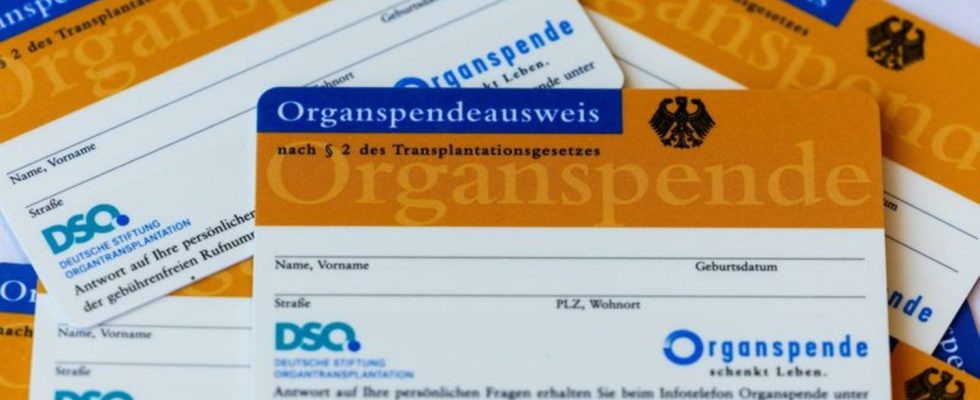Health
Could a lottery solve the shortage of organ donors?
To attract more people as potential organ donors, two economists have proposed a lottery. photo
© Rolf Vennenbernd/dpa
When it comes to organ donation, the Federal Minister of Health describes the situation in Germany as shameful. For years there have been discussions about how things can change.
Every holder of an organ donor card could automatically take part in an annual lottery in which prizes of, for example, ten, five and one million euros are raffled off, suggest Hanno Beck from Pforzheim University and Aloys Prinz from the University of Münster. The prices should therefore be financed by the state or the health insurance companies. The reactions to the proposal are rather reserved and critical. The current legal situation does not allow such a lottery.
“Lotteries as an instrument of economic policy are quite common in other countries,” explain the professors. In countries such as Taiwan, Malaysia, Chile, Puerto Rico, Brazil and the Philippines, every invoice with its registration number takes part in a lottery – this is intended to prevent tax evasion at the checkout. The pair also argue that the public attention such a lottery would receive each year would be helpful in trying to increase the number of organ donors.
Proposal currently not implementable
The German Transplantation Society (DTG) announced that it basically approved of all suggestions for improving organ donation numbers. “However, there is no donor register in Germany. Therefore, it is not possible to organize a raffle among holders of organ donor cards,” said the board.
The Federal Ministry of Health said the researchers’ proposal contradicted the Transplantation Act. “Any consideration of any kind for an organ donation conflicts with the legally anchored and punishable ban on organ trafficking.”
Any incentive to declare willingness to donate would also contradict the principle of voluntariness. “The personal decision to donate an organ should always be voluntary,” it said. “This means that there must be no legal compulsion nor that the decision is made for non-altruistic considerations.” Altruism means something like unselfishness.
From the perspective of Giessen law professor Steffen Augsberg, who is a member of the German Ethics Council, commercialization cannot be the solution. It is not a given that people donate organs. This is even an unreasonable expectation for potential donors. Nevertheless, the appreciation of such a decision must be of an intangible nature, he emphasized.
Otherwise it could happen that people with financial worries in particular have an organ donor card issued for this reason – and not out of actual conviction. “We also don’t want anyone to sell a kidney out of financial need. That’s why it’s forbidden,” said Augsberg. Once the path has been taken and it does not immediately lead to the hoped-for success, there is also the risk of driving the price ever higher.
A lottery is a playful approach that could perhaps even increase the number of organ donor cards. “From a normative perspective, however, it is doubtful that this is appropriate for a difficult, complex situation,” explained the professor.
Lack of donor organs
There has been a blatant shortage of donor organs in Germany for years. The number of postmortem organ donors has increased by eleven percent to 788 this year, as the German Organ Transplantation Foundation (DSO) announced last week. However, Federal Health Minister Karl Lauterbach (SPD) made it clear that Germany was still performing very poorly in international comparison. “This is shameful and it is life-threatening for the patients affected.”
There is always discussion about other models or procedures for organ donation. This is primarily about finding a solution to the contradiction. This would mean that every person is automatically considered an organ donor if they do not object.
In addition to organizational improvements, other ways to make more donor organs available include, for example, changes to the requirements for organ donations, said Augsberg. Organ removal after a cardiac arrest, which is already possible in other countries, is currently being discussed. In Germany, doctors have to determine that the person affected is brain dead. “Such approaches are less striking, but ultimately more promising.”
Beck and Prinz see possible problems with their idea – for example that people with unhealthy lifestyles could also register as organ donors. But this also applies to all other efforts to find organ donors. To ensure that no one gets an organ donor card just before the draw and then returns it, the condition for participating in the lottery should, according to the proposal, be that you have to be registered for at least one year.

